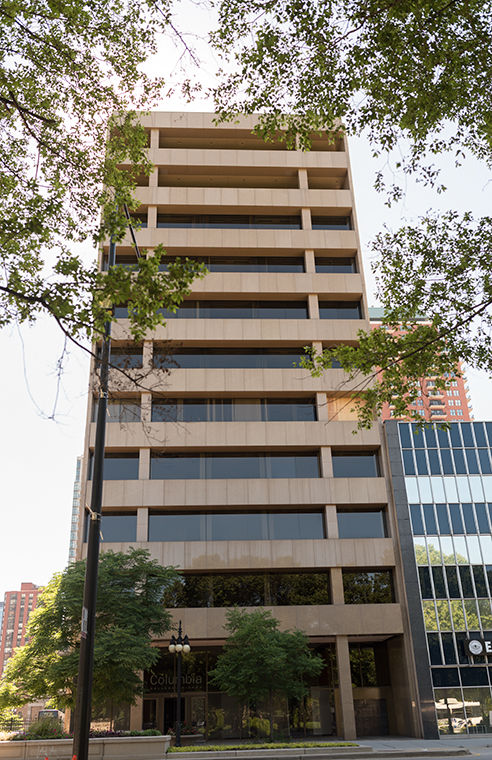Columbia to sell vacant, historical Johnson Building
Columbia is in the preliminary processes of selling the 820 S. Michigan Ave. Building, which was purchased by the college in 2010 after serving as Ebony and Jet magazines’ headquarters for several decades.
June 22, 2016
A year after deciding against using the 820 S. Michigan Ave. Building as a library or new student center, the college has decided to sell the 11-story-building, said college spokeswoman Cara Birch.
The building, most notable as the former headquarters for Johnson Publishing, publishers of Ebony and Jet magazines, will be soon put on the market because it no longer fulfills Columbia’s purposes, Birch said, adding that revenue from the sale will go toward the college’s student center funding.
“Over the past year, Columbia has been taking a comprehensive look at all its real estate holdings,” Birch said. “It has been vacant for so long [that] this was obviously the first [building] that should have been considered.”
Birch said Columbia’s initial plan after purchasing the building for $8 million in 2010 was to use it as a library, but this option was no longer considered after the library underwent renovations beginning in 2013, according to Jan Chinlund, dean of the Library.
The college then contemplated using the building for the new student center, Birch said, an idea considered before President and CEO Kwang-Wu Kim arrived at Columbia in July 2013 and later initiated the collegewide Strategic Plan.
As reported April 14, 2014, by The Chronicle, however, Kim told students at his second “Coffee with the President” forum on Feb. 26, 2014 that he was considering the Johnson Building as a possible student center site but cautioned, “Don’t hold me to it.”
In a June 14 emailed statement, Birch said the college opted not to use the building as the new student center’s location because its vertical shape will not accommodate all the students’ necessities.
“The college found that retrofitting a vertical office building would not provide an ideal working space for students practicing in highly diverse, creative fields and who engage in collaborative disciplines,” Birch said in the emailed statement.
She added that the college is currently looking for a broker who will determine the value of the property and the date it will go out on the market.
When Columbia purchased the property in 2010, the college made an agreement with the Johnson family to preserve specific offices, including John H. Johnson’s office, former CEO of Johnson Publishing and head of the famous magazines who died in 2005, information which was confirmed by Birch. She added that the building’s other valuable assets, such as artwork, were not part of the purchase and are property of the Johnson family.
The building’s historic significance was noted in a Nov. 15, 2010 article by the Robert Maynard Institute, which promotes diversity in the media.
“The building is historic not only because it was designed by an African American, John W. Moutoussamy, but also because it was owned by one—the first skyscraper owned by an African American in the Loop,” the article stated.
Allen Turner, former chair of Columbia’s Board of Trustees, stated in the article: “…we will have a part in preserving the legacy of the Johnson Building and its legendary significance to all Chicagoans.”
Birch said the option to continue this promise will depend on the new owner of the building, adding that the college’s agreement ends once the building is sold.
Representatives from Johnson Publishing could not be reached for comment as of press time.
Chikoo Patel, investment sales commercial Broker for Rock Realty Group, said the building located across from Grant Park will most likely be turned into apartments because of its proximity to the college and its South Loop location.
Patel added that condominiums would also be a potential use of the building if its structure allows it and if it has enough parking accommodations.
While Patel declined to give an exact estimate regarding the building’s potential sale price, he did said it is currently valued for more than 8 million—the reported purchase price. Birch said an asking price will not be decided until the college hires a broker.
Patel said the building’s historical value will likely not affect the sales price.
Bill Wolf, chair of the college’s board of trustees, said the sale of the building is an important step toward achieving the goals outlined in the Strategic Plan.
“Deciding to put the 820 S. Michigan building up for sale has been a well-thought out process that considers what is best for students, for Columbia and for the future use of historically significant building,” Wolf said in an June 14 emailed statement.








